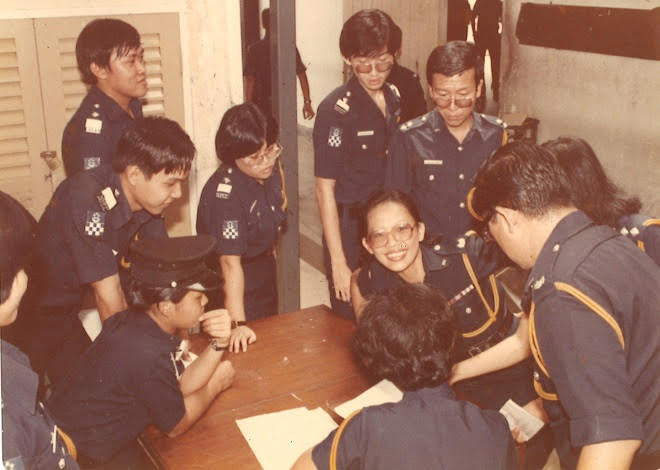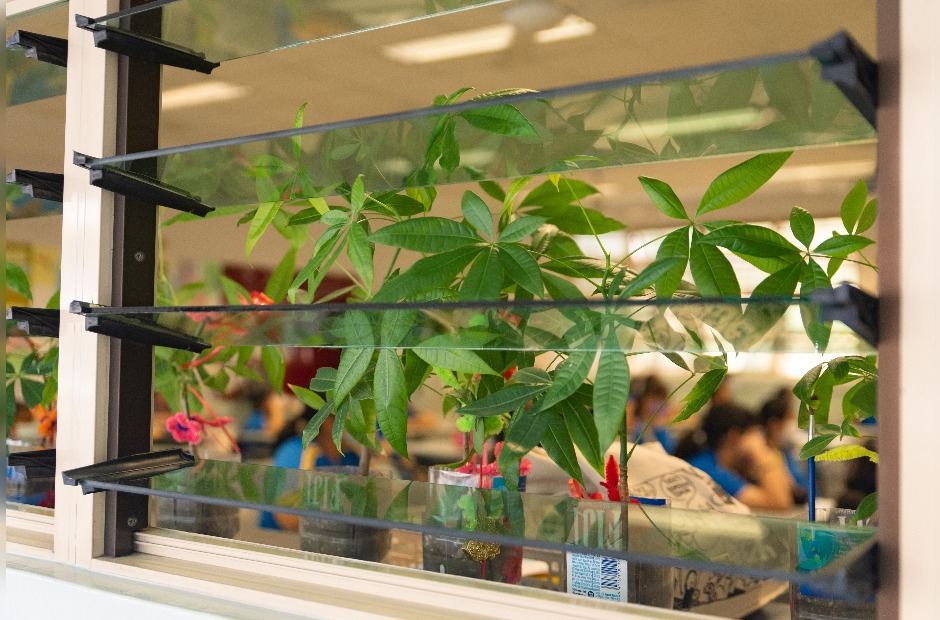As a young girl attending St Hilda’s School off Ceylon Road, some of Mrs Helen Tan’s most enduring school memories happened outside the classroom.
There was a teacher who brought the young girl out to the beach and taught her how to gaze at the stars and identify Orion; another who escorted the distraught child home to explain to her strict parents that even though she was not among the Top 5 in class, her grades were good; and also the coach who consoled the competitive young netballer when the team lost a game by saying that winning is not always the destination.
“I was inspired to teach by my own teachers,” says Mrs Tan, 73, who has been with the education service for 42 years and is still going strong now as a superintendent of the YMCA School and part-time counsellor at St Patrick’s School. She is also working with MOE in training teachers in sexuality education, citizenship and character education and social-skills education.
“Due to their influence, from the time I started teaching, I was also a great believer in character education. Character education is my pet love.”
Even back in those early days of her career, she believed in the value of co-curricular activities (CCA) as a tool for character education, and she has never shied away from spending money to introduce new CCAs.
The more CCAs, the merrier
When she was the principal of Minxin Primary between 1990 and 1995, she started a sailing CCA, let the pupils take organ lessons taught by Yamaha teachers at greatly subsidised rates (the organs were on loan from Yamaha but placed in the school), made swimming compulsory for all students, and made netball and soccer compulsory for the Primary 4 girls and boys respectively.
When questioned about how games would help build character, she says: “Just take netball for instance. It’s a team game. You have to work with your teammates…you have to give and take. Even if you lose, you have to lose gracefully. It’s not always about winning.”
The ever-energetic Mrs Tan also introduced the idea of CCAs at a private school, the YMCA School, which she has been actively leading since her retirement in 2004. Prior to Mrs Tan introducing basketball, Sports Club, the Green club, Art and Craft club, the students, mainly those from China preparing to take the ‘O’ levels in Singapore, had never encountered CCAs.
She even pushed for the students to take part in an adventure camp, which the parents were initially not happy with. “I got calls from their parents all the way from China, complaining about why I was wasting their children’s time on ‘wuliao’ (Chinese for ‘meaningless’ or ‘pointless’) activities instead of studying.”
“Now the students who don’t get to go come to ask me if they can participate!” says Mrs Tan. “These camps are not only about adventure learning, but also team bonding.”
NPCC in 1970
As a PE teacher, she helped to start MacPherson Secondary’s NPCC unit in 1970. There she witnessed the evolution of uniformed groups (UG) and how UG activities could build up character.
“Nation-wide, UGs were something all schools wanted to have for their students, as it was said to build up resilience, team bonding, character development and discipline,” she says.
Every secondary school would have a UG, and those with an enrolment of over 1,000 students had to have both NPCC and NCC groups.
Mrs Tan was sent to the Police Academy for three months of training, and when she returned to school, she was greeted by a deluge of students at her door, clamouring to join the new NPCC.
She says: “The first year we only [could] recruit 30 boys and 30 girls but over 100 wanted to join because it’s something new! For all the 10 years I was in MacPherson, we never had problems in recruitment,” she says.
Shift from Drills to Knowledge
When she was posted back to NPCC headquarters in 1979, however, she decided to shake things up: gunning for a general shift from the brawn to brains.
Mrs Tan introduced an NPCC quiz competition for all NPCC cadets, which included questions on police procedure, safety and general knowledge. She also introduced a national project-based competition, where NPCC cadets from each school would conduct research and present on a topic like bullying or the effects of smoking. “The objective was to get away from the physical, like drills, hone their research skills and get them to find out more about the topics.”
One of the biggest changes was abolishing the drill competition.
At the time, the nation-wide drill competition for NPCC contingents in every school was an intense exercise as everyone wanted the trophy. Once the results of the competition, usually held at the parade ground of the Police Academy at Thomson Road, were announced, reactions were extreme. “Those who won would be cheering, then you see the boys and girls who lost crying on the parade ground.
“Yes, there were officers who felt strongly that they wanted to keep the competition, as they felt it was a highlight, something that cadets looked forward to. But after weighing pros and cons, we felt it’s not really that useful. Do our students need to march up and down when they leave school?”
She played an even more important role when she was made Assistant Director of UGs at the CCA Branch in 1995. She took charge of all the uniformed groups in Singapore across primary and secondary schools: NCC, NPCC, Scouts, Guides, Girls’ Brigade and the National Civil Defence Cadet Corp.
All the groups were doing their own activities. But no one was talking to each other. So Mrs Tan started once-a-term meetings for all the uniformed group representatives and MOE to come together.
The outcome? Joint UG events, such as a yearly heritage trail involving a few thousand uniformed group cadets from the various schools, forming teams to go on treasure hunts where they would be asked questions at every station. They also came together to pool information in standardised guides for all UGs: The Scouts shared booklets on camp craft and songs, NCC took charge of the drills, St John’s and the Red Cross came up with first-aid guides.
What spurred her on to shake things up?
“I always want to see improvements and make a difference,” she says. “I’m not happy with things being the way they are.”
One of her brightest moments was when one of her old NPCC students wrote her a tribute in July 2014. Mrs Tan recalls Ms Lim Boon Cheng was a shy 13-year-old who became a confident sergeant when she graduated from MacPherson. Today, she is the principal of Beacon Primary. Upon reading her tribute, Mrs Tan was in tears.
Ms Lim had written: “Under your charge, you impressed upon us the importance of discipline, determination, responsibility and strength of character… I would like you to know that you are the best teacher I have ever had.”






